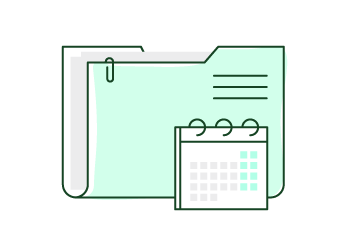Personal Productivity
Your Calendar Is Not a To-Do List
AUTHOR: Francisco Sáez
A while ago, I argued on this blog that using email as if it was a to-do list is, from my point of view, a very unproductive organizational approach. Each tool is designed for a type of use, and using email as a system of personal organization is like using a fork to hunt whales.
Using a Calendar as a to-do list is another approach, as bad as the previous one, which is also a legacy left us by the corporate world. It is not rare at all to see that still today there is the one who works with calendars like this one, full of tasks, without practically any free space:

Here are a few reasons why working this way is not only unproductive, but also very overwhelming:
- You do not know how long a task will take. No. You think you do, but you don’t. If you’re like me, you’re going to be wrong 9 times out of 10. What you thought was going to take 30 minutes, turns out to take 45; so you cannot start the next task because you have a meeting which, by the way, ends up lasting 20 minutes more than planned.
- The calendar is a source of frustration. Because of the above, at the end of the day, you have only finished 3 of the 7 tasks included in the calendar. This, on a daily basis, undermines anyone’s morale.
- To keep the calendar updated requires a lot of work. You plan out one or more days, probably a week. As you could not complete everything planned for today and also there are new emergencies, now you have to redo tomorrow’s schedule and all the following days to include these tasks. Any inclusion in the calendar leads to a shift of everything that follows.
- The calendar is a source of stress. Using a calendar normally involves a sense of urgency that is evident each time the tool sends you an alert to your email or your mobile to tell you that within X minutes you have a scheduled job that you did not remember.
- You never see the end of the tunnel. Yo do not know how many tasks you have or how many you still have left to finish a given project. No matter how many colors you use to identify different types of tasks, a task is not the equivalent to a gap in the calendar (it may require of many gaps on different days and in different sizes).
- You live in a situation of permanent crisis. Since everything you start has a deadline, you are constantly living in the Quadrants of Urgency. As it is the case with the email, you do not have a clear sequence of what you need doing. Your vision of the week is just a lot of tasks and events piled up in your calendar. You can only pray that no new stuff appear, so that things don’t get any worse.
- You do not know if you will be able to do the task at the scheduled time. Likely, on Thursday at 11am you do not have the material that you need to work on what you had planned. Or you’re not in the mood. Or something is distracting you. The calendar is based only on time; not in the context in which you find yourself or on the energy you have or on your priorities at the time.
The calendar is not a complete organizational tool in itself, although it is an important part of any system of personal organization. This is the part in which you should include any event that will happen on a particular day or on a specific time, such as a meeting, flying on a trip, or having to make a call to congratulate someone on their birthday. You can also use it to mentally block a space of time during which you want to be focused on something without anybody bothering you, but definitely it’s not the ideal place to have your tasks.
For that, you need at least a list of actions, and probably, additional lists in order to keep track of your projects and the tasks you’ve delegated to others.




No comments